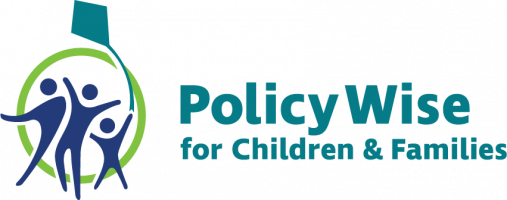PolicyWise for Children & Families invites nonprofits to learn about a new guide to help with their clients requesting workplace accommodations
Does your nonprofit team want to learn how to better help your clients requesting workplace accommodations?
PolicyWise for Children & Families invites Alberta nonprofits to enroll in our free online training to help your team support clients with workplace duty to accommodate. With the Alberta Human Right Commission, we will be hosting two webinars on March 25 and 26, 2024 that will introduce your team to:
- A guide for your team to support clients needing and requesting workplace accommodations and
- A form to help document conversations between employers and employees.

How to Register
There are two opportunities to register for our one-hour webinar introducing a new guide for requesting workplace accommodation.
- Monday, March 25, 2024 – 12:00 to 1:00 p.m. MST
- Tuesday, March 26, 2024 – 12:00 to 1:00 p.m. MST
If there is demand, future webinars may be scheduled.
How does this new guide support requests for workplace accommodations?
Alberta employers must accommodate employees’ needs based on the “protected grounds” covered under the Alberta Human Rights Act. For example, accommodating pregnancy can mean adjusting work duties to avoid heavy lifting or harmful chemicals. Accommodations should work for the needs of both the employee and the employer.
PolicyWise for Children & Families and the Alberta Human Rights Commission collaborated to develop a guide for nonprofits to help their clients’ requests for workplace accommodations. The guide will help nonprofits discuss with clients what the duty to accommodate means and how to request and negotiate accommodations with employers by:
- Helping clients understand their employee rights and discuss accommodation requests confidently with their employers
- Preparing clients for conversations, collaborations, and compromises to achieve accommodations
- Helping clients communicate their needs effectively, be flexible and creative, and protect their dignity, privacy, and livelihood.
- Providing clients with the accompanying form to document their conversation with the employer.
Action through Connection
The new guide and training resulted from:
- A collaboration with the Alberta Human Rights Commission and
- A workshop at our Action through Connection event in October 2023
Action through Connection was an interactive day dedicated to workshopping grassroots-informed program and policy solutions. It was a unique opportunity for individuals from diverse sectors to connect and collaborate in supporting women’s employment and entrepreneurship.
Project Partners
The Alberta Human Rights Commission collaborated in developing these webinars and their related tools.
This event is funded by Women and Gender Equality Canada.



